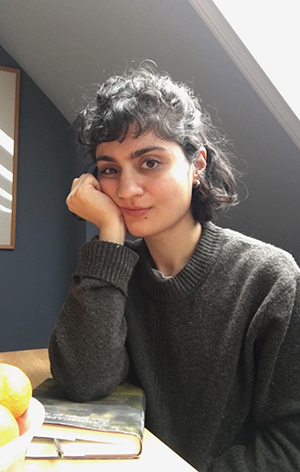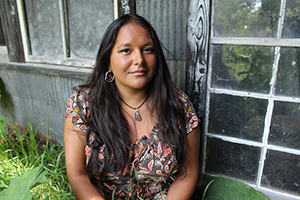Offering Answers: Danielle Geller in Conversation with Bahar Orang

Fiction Editorial Board member Danielle Geller talks with Bahar Orang, creative nonfiction judge for our 2023 Open Season Awards. They discuss creative nonfiction as exceedingly porous, the tension between story and poem, and reading without any predetermined expectations.
Bahar Orang is a writer living in Toronto. Her first book is Where Things Touch: A Meditation on Beauty.
First of all, congratulations on winning our 2022 Open Season Award in Creative Nonfiction! Secondly, thank you for serving as a judge in this year’s contest. The words judge, judging, judgement can have uncomfortable connotations, and it can be intimidating, as a writer, to submit your work to these kinds of contests. How do you perceive your role as “judge”?
This is a difficult question. I am excited and curious to read the writing that comes my way, and I hope to do it with a lot of care; but I know that judging is a fraught practice. I worry, as I know many of us do, about how much we as writers must rely on such things—contests, prizes, and the like. Still, I know it will be good news for the winner, and the money will mean something. I see my role as helping to make and deliver that good news, and giving a moment or more of reprieve and delight for that one writer amid these terrible times.
Could you share a recent essay, poem, or story that you loved?
The monograph O Lone Traveller (یا مسافر وحدک) by Melissa Hashemi, Shirin Fahimi, and Mitra Fakhrasrafi
The collection of essays, Swimming up a Dark Tunnel, by Letticia Cosbert Miller
And the poem “Tender” by Sophie Klahr
When writers talk about creative nonfiction, we often talk about the craft and techniques it borrows from fiction: character, narrative, scene, and so on. But creative nonfiction writers also borrow techniques like form and prosody from poetry. In your winning essay, “You Try to Write a Love Story,” you write into the tension between story and poem; your book, Where Things Touch: A Meditation on Beauty, is classified as both essay and prose poetry. How are you thinking about the genre of “creative nonfiction” these days?
I continue to cling to a creative nonfiction that is exceedingly porous. I don’t want its borders to firm up. Fiction, poetry, theory—all of it can be held, however tenuously and dangerously, by creative nonfiction.
As someone who writes across genres, how do you make decisions about where to submit your work?
There are the more obvious directives, like where the line breaks are or how the “I” shows up in the writing. But rather than specifications of genre, probably what guides submission decisions for me most is whether I suspect that the kernel of the world that I’m trying to express would make sense for that particular journal, magazine, or whatever else. In other words, do we share an ideology?
In Where Things Touch, you write, “...sometimes, in the space between question and answer, we escape, for a moment, the hierarchies and taxonomies that regulate our thoughts and our lives.” For me, this articulates the arc of creative nonfiction so well! Writing creative nonfiction is an opportunity to interrogate what we believe, and why. I usually begin writing without knowing the question; I think I have the answer, then work backwards. Do you begin with the question or the answer?
I think for me it’s questions that lead to evermore questions. But I do believe in offering answers. As poets and artists, I think we often have good answers to ethical questions or political questions, and where we don’t have them, we should look for them, and articulate them together. Questions are essential to writing, but I believe in something like a cultural front, with clear answers that we can say together.
Finally, what do you think you are looking for in the winning creative nonfiction entry?
I am doing my best to enter without any predetermined expectations for what makes a winning entry. I am doing my best to enter with as much humility and openness as can be summoned. But to this point, the writing that has interested me and moved me does relate somehow with what’s contained by the quote in your previous question—-writing that suspends me, liberates me, however briefly, from the oppressive or violent or mundane orders of the world, and usually does so with a good amount of tenderness and clarity.

Danielle Geller
* * * * * * * *









